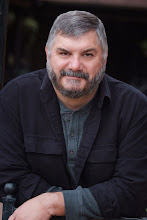Today was the travel day. Last night Eli and Callista drove up to Dekalb to visit before I traveled off to Washington. It was a wonderful but short visit, especially after the exploration of the previous week. It is hard to imagine my world without them and yet, throughout history, families have been torn apart and destroyed by war and the insidiousness of genocide.
For the past week I have been looking at pictures and films, reading stories and statistics, and hearing from survivors of genocide. "Never Again" is a joke. It is a statement based in naivety. We need to focus on the reality that genocide is occurring in the world today, just as it has in the past and will in the future. That is a fact. But what we can change is how we, as a nation, as a global community, as human beings respond to that fact. Do we simply shrug and say its impossible or do we use our collective clout, will, and resources - political, diplomatic, financial, military, and humanitarian to quickly and decisively intervene BEFORE the genocides begin.
Go back and read my post of Day Two, where we explored the Eight Stages of Genocide developed by Gregory H. Stanton of Genocide Watch. The activities that prepare and lead to the actual atrocities and killings are public. We see them in the news every day. Journalists document and write about them. The world's Intelligence Agencies track these activities. So if the world can anticipate genocidal activity WHY don't we do anything. Is the world morally bankrupt? Have we lost our humanity. Or is it that we allow our leaders to determine was is in our "national best interest" and chart a course where oil is more valuable than human life?
While traveling to Washington, I was able to read Roger Smith's powerful essay The Response to Genocide that was published in The Chronicle Review on July 30, 2004. In the article he discussed how genocide can be prevented. He promotes the idea that "it is crucial that policy makers redefine 'national interests' to include the prevention of genocide abroad." He bases this call for an expanded understanding of the term on two arguments and I quote them here:
"The first is moral: Genocide is a crime committed upon a particular people, but by its very nature, it is also a crime against humankind, permanently diminishing the biological and cultural possibilities of human existence. It is an outrage to our sense of justice. Since when can we support, allow, defend the mass killings of the innocent?
The second reason: Genocide leads to war, regional and international instability, disruption of trade, an enormous outflow of refugees, and if not stopped, sends a message to would-be perpetrators that they can go ahead with impunity."
In July 2004, the United Nations launched their Action Plan to Prevent Genocide.It was to involve the whole United Nations system. This plan is based on five acts of intervention:
1. Preventing armed conflict.
2. Protection of civilians in armed conflict.
3. Ending impunity.
4. Early and clear warning.
5. Swift and decisive action.
In his introductory remarks announcing the plan, Secretary-General Kofi Annan, in speaking before the Commission on Human Rights said:
"We must never forget our collective failure to protect at least 800,000 defenceless men, women and children who perished in Rwanda 10 years ago. Such crimes cannot be reversed. Such failures cannot be repaired. The dead cannot be brought back to life. So what can we do? First, we must all acknowledge our responsibility for not having done more to prevent or stop the genocide."
It is now almost July 2008. Four years for action. Yet the genocide still continues in Darfur and the Congo.
We have failed to act AGAIN.
It is time for change.
It is past time for action.


No comments:
Post a Comment